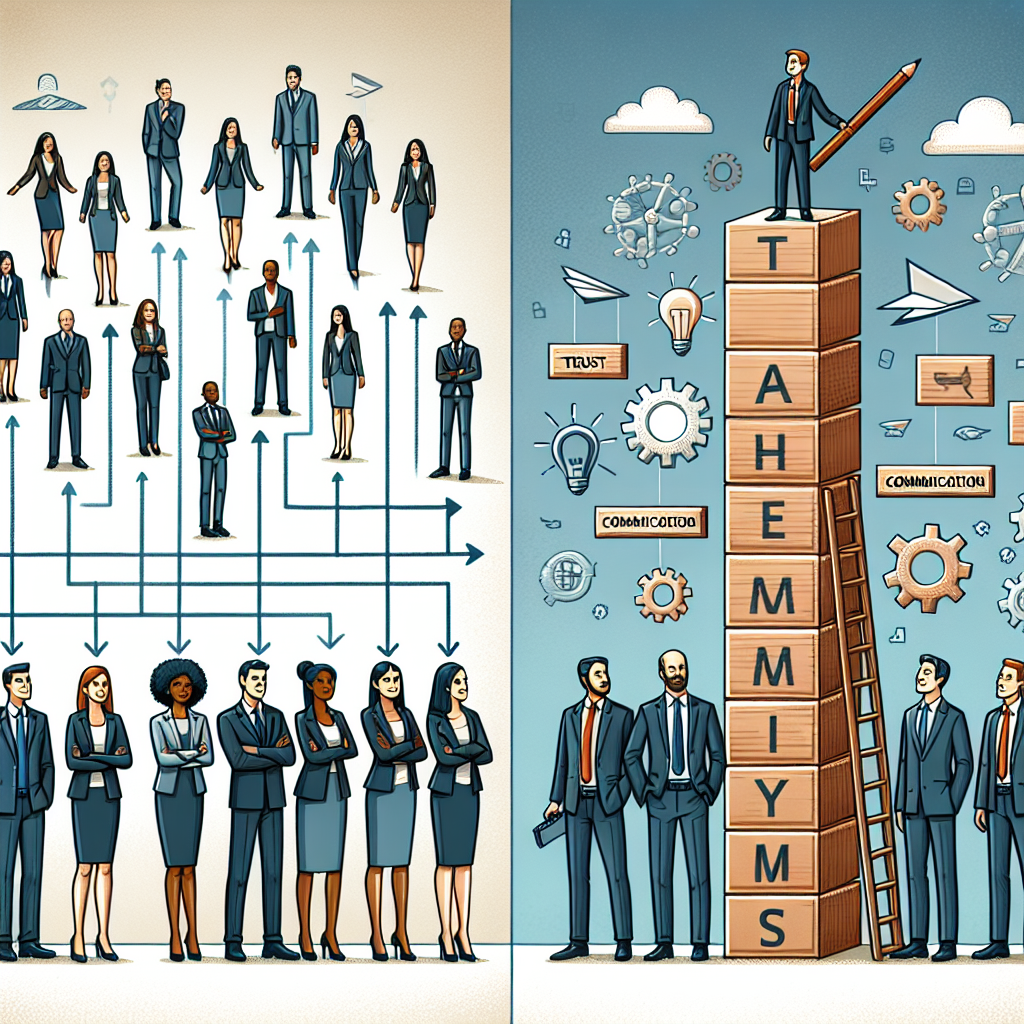Effective Teamwork Strategies: Building Trust and Communication for Success
In today’s fast-paced and competitive business environment, teamwork is essential for achieving success. Whether you’re working on a project with a small team or collaborating with colleagues from different departments, effective teamwork can make all the difference in reaching your goals. Building trust and maintaining open communication are two key strategies for fostering a positive and productive team dynamic. In this article, we’ll explore the importance of trust and communication in teamwork, as well as provide some tips and best practices for incorporating these strategies into your team.
Importance of Trust in Teamwork
Trust is the foundation of any successful team. Without trust, team members may be hesitant to share their ideas, collaborate with one another, or take ownership of their tasks. Building trust within a team requires time and effort, but the benefits are well worth it. When team members trust one another, they are more likely to communicate openly, support one another, and work together towards a common goal.
Here are some key ways to build trust within your team:
1. Set clear expectations: Clearly define each team member’s role and responsibilities, as well as the goals and objectives of the project. By setting clear expectations, team members can understand their individual contributions to the team and the overall success of the project.
2. Be reliable and consistent: Consistency is key to building trust. Be reliable in your communication and follow through on your commitments. Show up on time for meetings, respond to emails in a timely manner, and deliver on your promises. By being consistent in your actions, you demonstrate to your team members that they can rely on you.
3. Foster open communication: Encourage open and honest communication within your team. Create a safe space where team members can share their ideas, concerns, and feedback without fear of judgment or reprisal. Regular team meetings and check-ins can help facilitate communication and build trust among team members.
Importance of Communication in Teamwork
Effective communication is another crucial aspect of successful teamwork. Clear and timely communication helps team members stay informed, aligned, and engaged in the project. Without strong communication, team members may become disconnected, misunderstand each other’s intentions, or duplicate efforts. By fostering a culture of open communication within your team, you can enhance collaboration, improve decision-making, and drive better results.
Here are some strategies for improving communication within your team:
1. Use multiple communication channels: Different team members may prefer different communication channels, such as email, phone calls, instant messaging, or in-person meetings. Use a combination of communication channels to ensure that all team members are informed and engaged in the project.
2. Practice active listening: Listen to your team members with an open mind and without interrupting. Pay attention to their concerns, ideas, and feedback, and ask clarifying questions to ensure that you understand their perspective. By practicing active listening, you demonstrate respect for your team members’ opinions and foster better communication.
3. Provide regular updates: Keep your team members informed about project progress, upcoming deadlines, and any changes to the project scope. Regular updates help to maintain transparency and alignment within the team, as well as prevent misunderstandings or miscommunications.
4. Encourage collaboration: Encourage your team members to collaborate and share their ideas with one another. Encourage brainstorming sessions, group discussions, and peer reviews to foster creativity, innovation, and engagement within the team. By encouraging collaboration, you can leverage the diverse skills and perspectives of your team members to drive better results.
By incorporating trust and communication into your team’s dynamics, you can enhance collaboration, engagement, and productivity. By building trust, setting clear expectations, and fostering open communication within your team, you can create a positive and supportive team environment where team members feel valued, respected, and motivated to achieve their goals.
FAQs:
1. How can I build trust within my team?
Building trust within your team requires time, effort, and consistency. Set clear expectations, be reliable and consistent, and foster open communication to build trust among team members. Encourage collaboration, respect each other’s opinions, and demonstrate honesty and integrity in your interactions with your team members.
2. How can I improve communication within my team?
To improve communication within your team, use multiple communication channels, practice active listening, provide regular updates, and encourage collaboration. Create a culture of open communication where team members feel comfortable sharing their ideas, concerns, and feedback. Use tools and technology to streamline communication and ensure that all team members are informed and engaged in the project.
3. What are some common communication challenges in teamwork?
Common communication challenges in teamwork include misinterpretation, miscommunication, lack of clarity, and poor listening skills. To overcome these challenges, practice active listening, clarify expectations, provide regular updates, and encourage collaboration within your team. Address any communication barriers or conflicts promptly to maintain a positive and productive team dynamic.





Leave A Comment